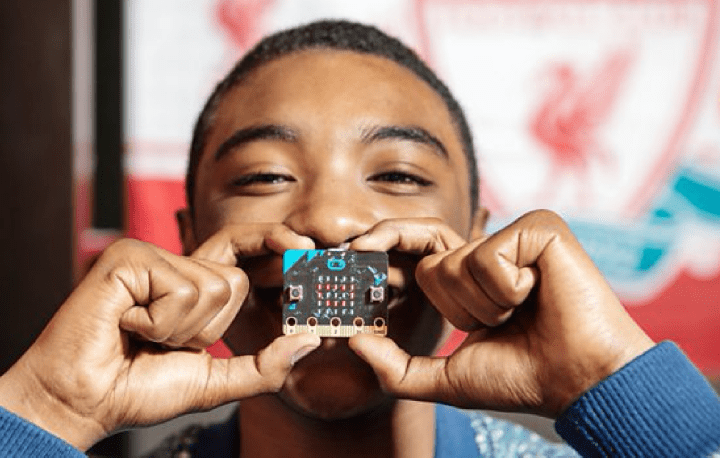
It’s akin to a similar program in the 1980’s, in which school children learned basic programming skills on the BBC Microcomputer — but now, decades later, the hardware is cooler, the knowledge base is wider, and it would seem that the possibilities are more endless than ever.
The hope, the government broadcaster notes, is to assist in coding education and further ignite interest in STEM fields. The Micro: bit is a particularly interesting device of choice, consisting of a programmable array of red LED lights, two buttons, a built-in motion sensor, and a magnetometer.
In order to program the device, users are meant to write code on a website, then transfer it to the tiny gadget either by way of a USB cable or Bluetooth. The Micro:bit is also connectable to other machines (like the Raspberry Pi) to further broaden the realm of creation.
“The BBC micro:bit has the potential to be a seminal piece of British innovation, helping this generation to be the coders, programmers and digital pioneers of the future,” BBC director-general Tony Hall said of the new initiative. And while these devices have been a long time coming (they were initially promised to schools in 2015), now that they’re finally in the public realm, the BBC is looking for ways to make the Micro: bits even more accessible.
“Following the nationwide rollout, the BBC Micro:bit hardware, and much of the software,will be open-sourced,” the organization noted. “BBC micro:bits will be available to buy from a range of retailers. Money generated from these commercial sales will be used to further encourage as many people as possible to join the coding revolution.”


